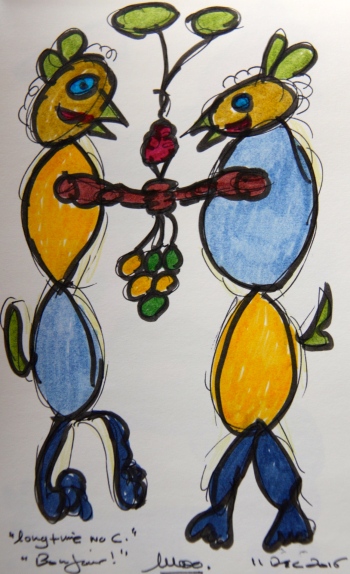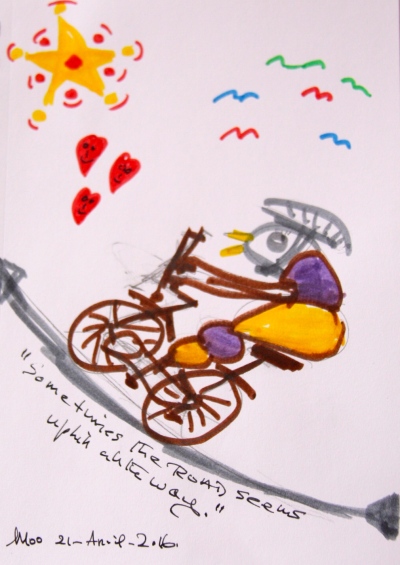“And never the twain shall meet.” This was the chorus that my grandparents often chanted at me when family members started rowing with each other over one trivial incident or another.
“But what happens when the twain do meet,” I used to ask.
“Don’t be silly,” they said. “The twain never meet. Ever.”
But I know very well that they do.
I know.
I’ve seen them together.

Funny things, they are, the twain, and opposites in so many ways. But so nice, in spite of what some people, especially my grandparents, used to say about them.
Not only do they meet, but they can be happy together and very, very friendly.
“Long time, no see,” the twain say, and embrace quite warmly with a bunch of flowers held between them.

Mind you, the twain can also be quite awkward and occasionally very abusive towards each other. I remember my mother and father fighting “like cats and dogs” as my grandparents used to say.
Now, my grandparents had a cat. It was black and white and striped like a zebra. They called it Spot. My parents had a dog. It was an English Cocker Spaniel, gold in color, and off-spring to a famous sire. They called it Wimpy but it was by no means a wimp and fought with everything in sight, especially the cat.
So when my father and mother fought and the family cat and dog fought, I thought, quite reasonably in my opinion, that dogs (with their short hair) were male and cats (with their long hair) were female, and that was the reason why they fought like cats and dogs. And “never the twain shall meet” as my grandparents used to say about my mother and father and the cat and the dog.
I guess it was too early to learn about the birds and the bees when, young and all too innocent, I was learning about the cats and the dogs.

And of course it’s only natural that the twain should meet. My mother and my father, the cat and the dog, had to meet somewhere, didn’t they? How else would I be here? We weren’t the sort of family that practiced contraception by throwing stones at the storks to keep the babies away. But I could never work out why the cat always had female kittens while the dog had all-male off-spring. That was a bit too much for me, and nobody ever explained anything in those days.
And look, in spite of the differences between them, even cats and dogs can sometimes live together in peace. And opposites can and do attract, don’t they? Look at these two, coming together like a pair of magnets.

Or, as the King of Rock and Roll might have phrased it:
“I’m so square.”
“Baby, I don’t care.”











